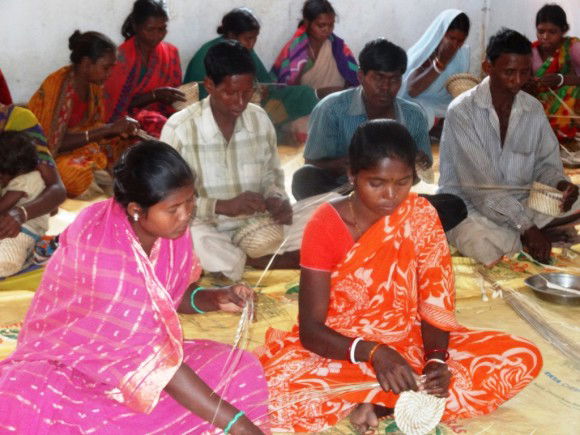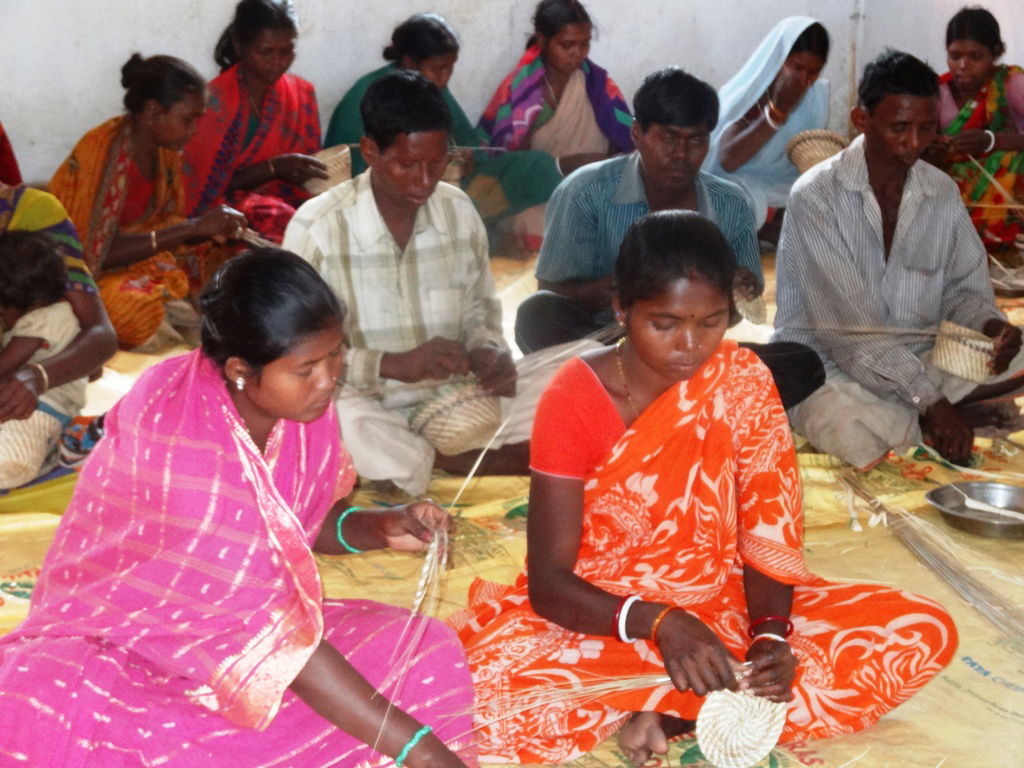Articles features
Making a difference: How a woman official changed tribal habits and became their ‘god’

Ranchi, Feb 14
Appalled at the sight of the menfolk of a primitive Jharkhand tribe lolling around in a drunken stupor while the women crafted a range of artifacts for which unfortunately there was no market, a woman bureaucrat took matters in hand and effected a social miracle of sorts, for which she is worshipped as a “Mother Goddess†in more than 25 villages of the area.
Suchitra Sinha, currently Jharkhand's tourism director, is worshipped as "Devi Maa" with her photograph occupying a prominent place among the other gods and goddesses in the prayer room of tribal homes.
"She is our mother. Our Devi mother. We have not seen God but for us this mother has always stood by us whenever we have needed her," Manju, a Sabar tribe woman who resides in Samanpur village of Nimdih block, some 135 km from Jharkhand capital Ranchi, told a visiting IANS correspondent through a translator. It's not just the 250 families of Samanpur village but also those of Makula, Bhangad, Bindubeda, Biridudih, Chirubeda, Bereda and other villages where Sinha is venerated.
The reason for this lay in a huge hall behind the village school where large numbers of men and women were hard at work making artefacts and other items of daily use from forest produce.
"It is maa (Mother) who has made sure that food is prepared in our homes, our children are fed and the male members were put on the right track of life," Manju explained.
Sinha had cleared the Bihar Public Service Commission examination (Jharkhand was carved out of Bihar) in 1988 and was familiar with the underdeveloped area that was a hotbed of Maoist rebels as well from the time she as posted as Jamshedpur's deputy collector in 1990. However, her visit to Samanpur village in 1996 for attending an event was the turning point.
She took up the matter with the Deputy Development Commissioner (DDC), who, instead of hearing her out, suggested she concentrate on her official duties. Jeeringly, he said it was naive to believe that the villagers could be pulled out of the state of intoxication they lived in for most of the time.
Even Sinha's family members laughed at her intentions.
However, this did not deter Sinha and she made repeat visits to Samanpur village, speaking to the men to turn a new leaf, making the women realise their exceptional talent and soon earned their trust.
Gradually, people started listening to her; even the youths started to associate with Her. She suffered a setback when she was transferred to New Delhi but she was committed to ensuring that her efforts see the light of the day.
Sinha took the items made by the villagers to the Development Commissioner for Handicrafts and informed him about the talent of the villagers. The commissioner encouraged her and also suggested that the villagers be trained in modern techniques.
By now, word of Sinha's mission had spread and the residents of other villagers too began to enthusiastically join in.
She later formed a self-help group named Amabalika and in groups of 10, the villagers were brought to New Delhi, where they were trained at the National Institute of Fashion Technology (NIFT). These villagers, in turn, trained others in their own villages and the rest, as they say, is history.
Her efforts translated into reality and soon the handicrafts started getting markets for themselves.
In all this, Sinha is extremely self-effacing. "Please do not highlight me. Highlight the problems of the primitive tribes who need immediate help. I will be happy if corporate houses adopt the villages and develop basic infrastructure in the area. The area lacks electricity, roads and basic facilities. We are planning to develop the area and develop the craft village," Sinha told IANS.
"I do not want to be worshipped as goddess; neither do I want to be in the limelight. I have just made sure that the members of the Sabar tribe, who are on the verge of extinction, get economic benefits through their skills," she said.
Asked whether family responsibilities have come in her way, Sinha said she has beautifully managed to strike a balance between her roles as a wife, daughter-in-law and mother and is fully supported by her family members in her efforts.
Her husband, an Indian Revenue Service officer, is posted in New Delhi and her children are settled. She lives alone in Ranchi and wants to continue her work for the betterment of the Sabar tribals.
(Nityanand Shukla can be contacted at nityanand.s@ians.in)




































